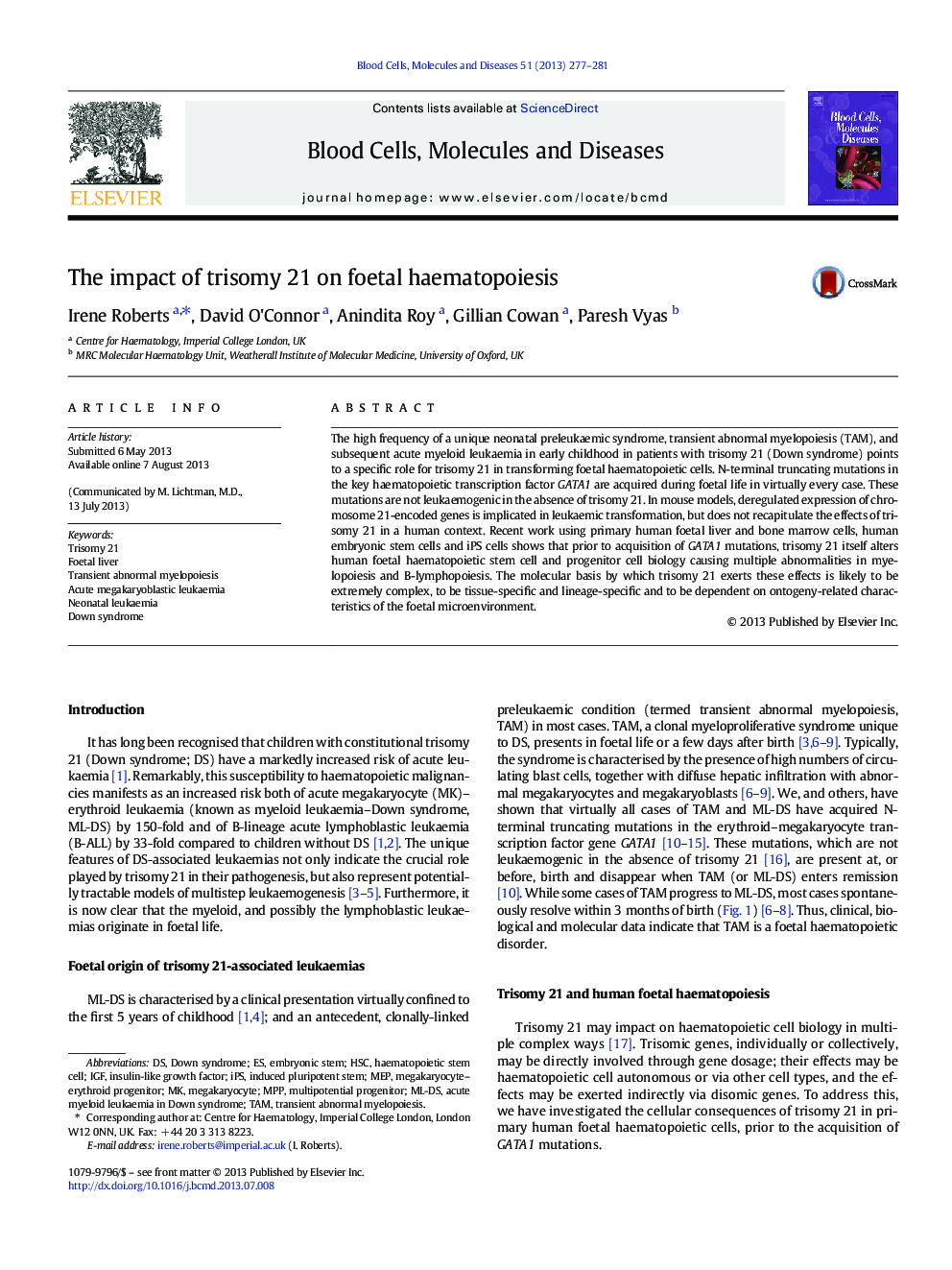| Article ID | Journal | Published Year | Pages | File Type |
|---|---|---|---|---|
| 2827323 | Blood Cells, Molecules, and Diseases | 2013 | 5 Pages |
The high frequency of a unique neonatal preleukaemic syndrome, transient abnormal myelopoiesis (TAM), and subsequent acute myeloid leukaemia in early childhood in patients with trisomy 21 (Down syndrome) points to a specific role for trisomy 21 in transforming foetal haematopoietic cells. N-terminal truncating mutations in the key haematopoietic transcription factor GATA1 are acquired during foetal life in virtually every case. These mutations are not leukaemogenic in the absence of trisomy 21. In mouse models, deregulated expression of chromosome 21-encoded genes is implicated in leukaemic transformation, but does not recapitulate the effects of trisomy 21 in a human context. Recent work using primary human foetal liver and bone marrow cells, human embryonic stem cells and iPS cells shows that prior to acquisition of GATA1 mutations, trisomy 21 itself alters human foetal haematopoietic stem cell and progenitor cell biology causing multiple abnormalities in myelopoiesis and B-lymphopoiesis. The molecular basis by which trisomy 21 exerts these effects is likely to be extremely complex, to be tissue-specific and lineage-specific and to be dependent on ontogeny-related characteristics of the foetal microenvironment.
